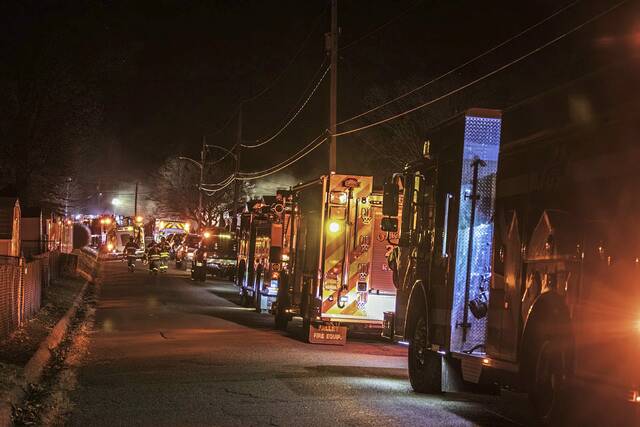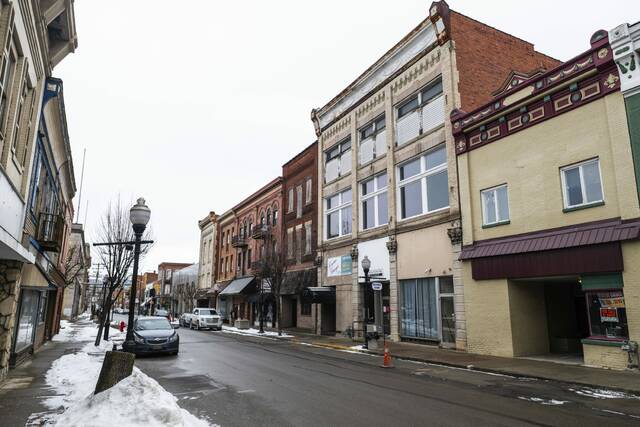Nursing home operators facing criminal and civil charges for health care fraud and unfair labor practices are now being accused by the federal government of trying to sell off assets prior to trial to avoid any financial judgments that may be imposed.
Comprehensive Healthcare Management Services found a buyer for seven of its Western Pennsylvania facilities in a $56 million deal that is slated to close Oct. 1.
After learning of the deal, the federal government sought a temporary restraining order and injunction to stop it. In its court filings, the government said Ephram Lahasky, a principal owner of Comprehensive, also holds an ownership interest in Kadima Healthcare Group Inc., the company buying the facilities.
“This, to me, doesn’t pass the smell test, your honor,” U.S. Labor Department attorney Alejandro Herrera said at a hearing this week. “This is an extraordinary remedy, and we did not bring it lightly.”
In the labor action, the department is seeking $20 million in unpaid back wages and overtime against Comprehensive in a case filed against it in 2018.
Comprehensive operates 15 nursing and rehabilitation facilities across Western Pennsylvania. They include Brighton Rehabilitation and Wellness Center in Beaver County, site of one of the nation’s deadliest covid-19 outbreaks.
In 2018, the Labor Department filed a complaint alleging that Comprehensive had, for four years, failed to pay employees at its facilities for working overtime or maintain accurate records of wages and hours worked.
In the years after that, several other agencies began their own investigations of the company, resulting in federal criminal charges against the corporate entity and several top administrators, including owner and CEO Sam Halper.
They are accused of engaging in two schemes to drive up profits, including manipulating time sheets and time clocks to make it appear that the facilities were meeting state and federally mandated staffing requirements. They also were accused of manipulating patient treatment and medical records to obtain higher reimbursements than they were owed.
The criminal case is pending.
The Labor Department case was scheduled to go to trial on Sept. 10 but has been postponed.
In a court filing, Herrera wrote that the sale of the nursing homes appeared to be an effort to frustrate the department’s ability to recover the money sought on the labor claims.
“The secretary respectfully submits that the timing of defendants’ sale … and the lack of an arm’s-length relationship between the buyers and sellers raises a significant concern that defendants seek to dissipate assets that will be subject to a judgment entered in this matter,” he said.
The facilities involved in the would-be sale, which have a combined 747 beds, are: The Grove at Irwin, The Grove at Harmony, The Grove at Washington, The Grove at Latrobe, The Grove at New Wilmington, The Grove at New Castle and The Grove at Greenville.
On Aug. 29, the government filed a motion for a temporary restraining order barring the completion of the sale.
Attorneys for Comprehensive objected, arguing that the labor secretary has no authority to prevent the sale of property to potentially satisfy a future debt.
A federal judge granted an initial restraining order on Aug. 31 and then continued it through Sept. 27. Another hearing on the injunction will be held Sept. 20.
Whether Lahasky would profit from the sale remains a point of contention.
Trib investigation of Brighton Rehab:
• From 2021: Hidden danger - Registered sex offenders often go undetected in care homes, sometimes at an unspeakable cost• From 2020: Tragedy at Brighton - A coronavirus outbreak at Brighton Rehab turned into one of the nation’s worst, but problems at the nursing home started well before the pandemic
According to Herrera, officials at the state Department of Health confirmed that Lahasky holds an ownership interest in Kadima Healthcare Group Inc. In one document cited by the government, they said it was a 20% interest.
Comprehensive’s attorneys contend Lahasky is not an owner of the company planning to buy the seven nursing homes.
“He’s not. There is no evidence in the record, and the reality is there can’t be evidence because it’s just not true that he has any interest in Kadima Healthcare entities that are the purchaser of the facilities that would have been subject to the (transfer and sale),” attorney Jeffrey A. Schwartz said during a hearing Wednesday.
In a declaration attached to one of their filings, Lahasky said he is a minority owner for operations in Eastern Pennsylvania that share ownership with Kadima.
Lahasky also said in that filing that Comprehensive wants to sell the facilities because they have been consistently losing money, and that negotiations for the sale began six months ago.
The properties at issue, Lahasky said, are subject to an outstanding $46 million loan that was placed in default by the lender on Aug. 31.
“The sellers must pay off the loan at the closing. The sellers will also provide seller financing to the buyers. After taking into account the seller financing, the … loan payoff, closing expenses and the satisfaction of certain liabilities, the sellers do not expect to receive any cash proceeds from the sale,” Lahasky said.
At Wednesday’s hearing, Comprehensive’s attorney called the government’s allegations about the sale “a red herring.”
“This kind of transaction doesn’t happen in 15 minutes. They were negotiating over months. … There is really no evidence that this is being done to convey assets fraudulently,” Schwartz said.
During Wednesday’s hearing, Schwartz said Kadima is likely to back out of the sale for fear that, if there is a judgment in the Labor Department case, it could be subjected to it as the successor business.
Messages left with Kadima were not immediately returned Friday.
The parties in the labor case appeared to have been close to a $15 million settlement last year, but it fell through after Comprehensive’s attorneys said the company was on the verge of financial ruin.
The Labor Department asked the court to enforce what it believed was a final settlement, but in an opinion issued in February, U.S. District Judge William S. Stickman IV said he did not believe the agreement had been finalized. Therefore, Comprehensive was not bound by it.
On Thursday, Chief U.S. District Judge Mark Hornak held a status conference in the case, ordering that Comprehensive make three people available for depositions next week, including Lahasky and Halper.
Comprehensive objected to the depositions, but Hornak said the government is entitled to hold them, and they must occur quickly, prior to the continuation of the injunction hearing on Sept. 20.
“It’s a big deal. Time is short,” Hornak said. “The interests are significant. This is a big case for both sides.”
According to Herrera, if the government wins at trial, $20.5 million in back wages are due, which would then double to pay for damages.








